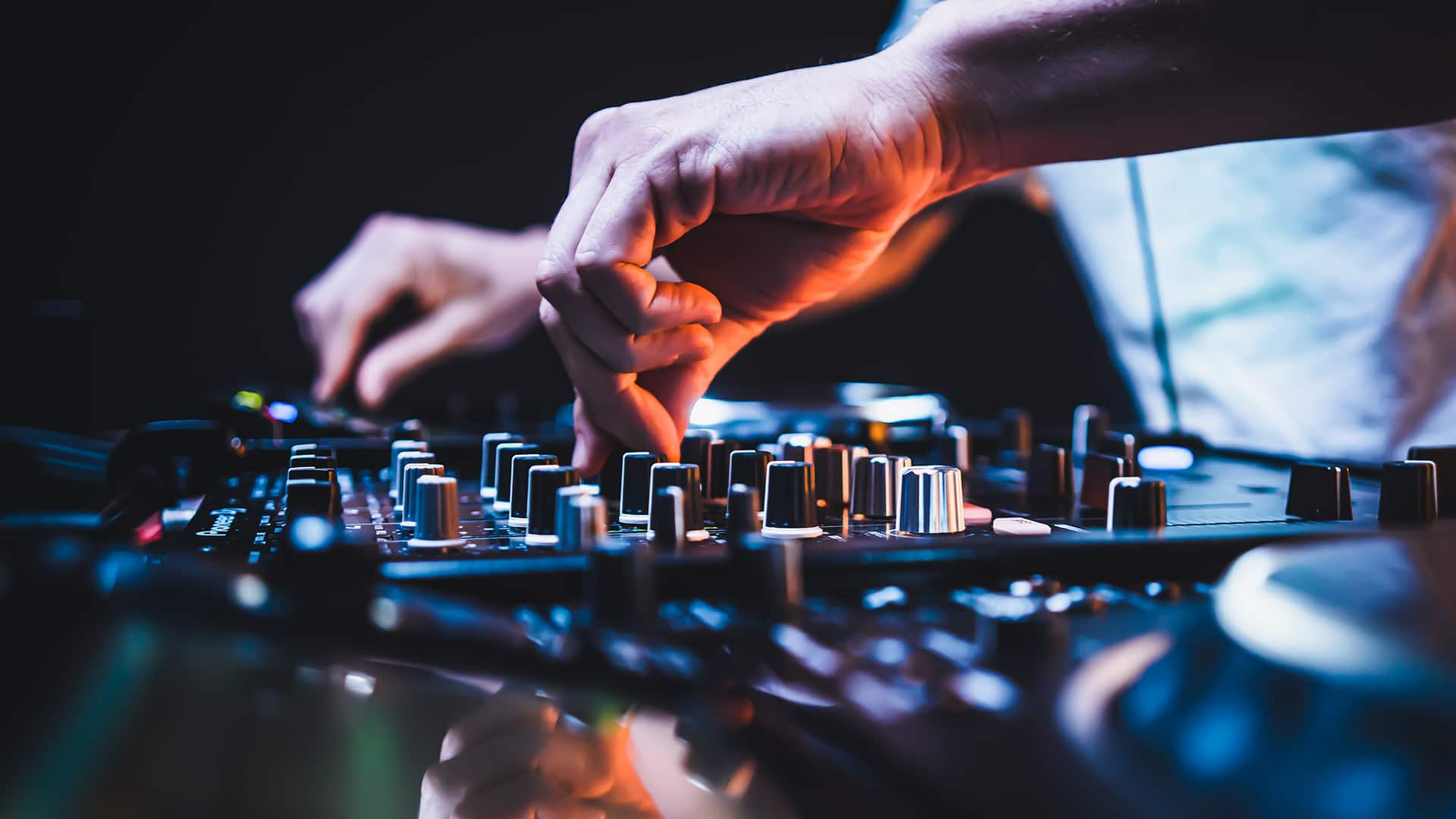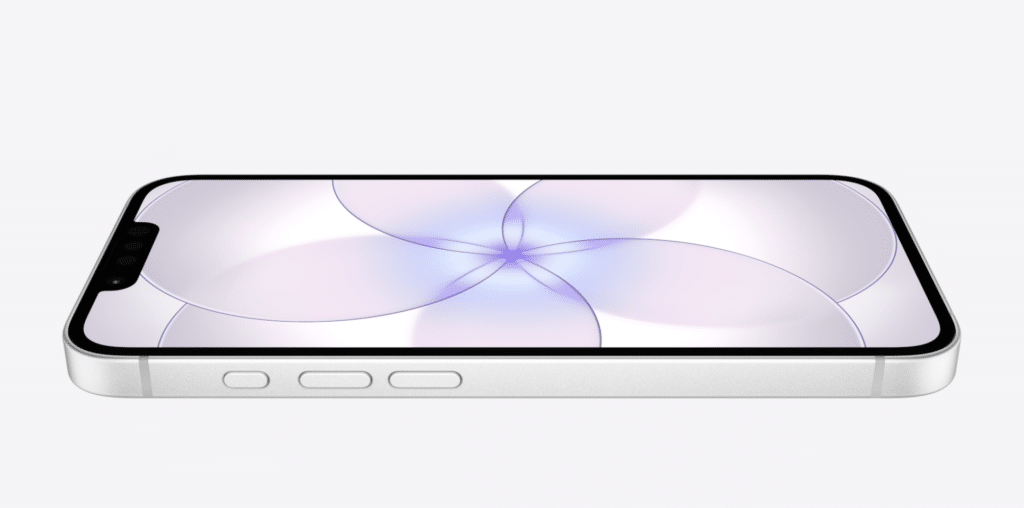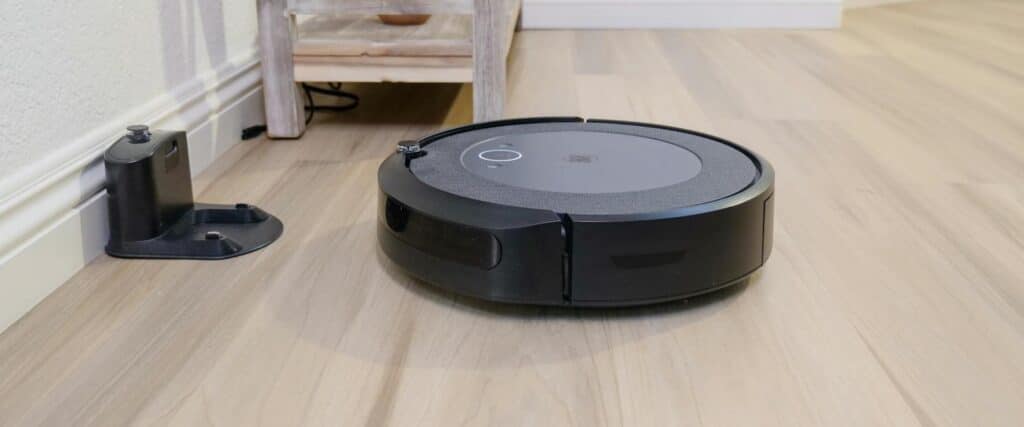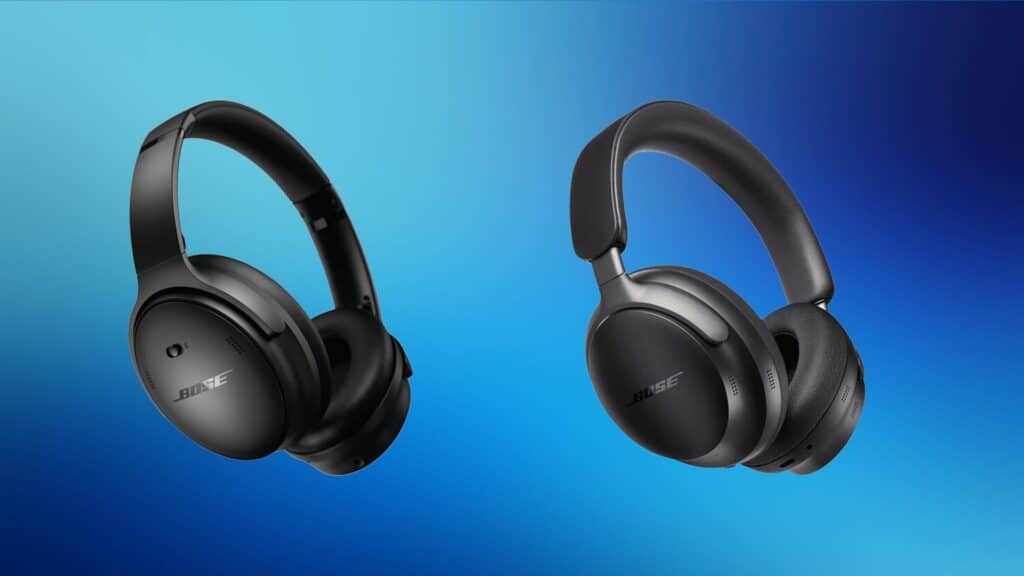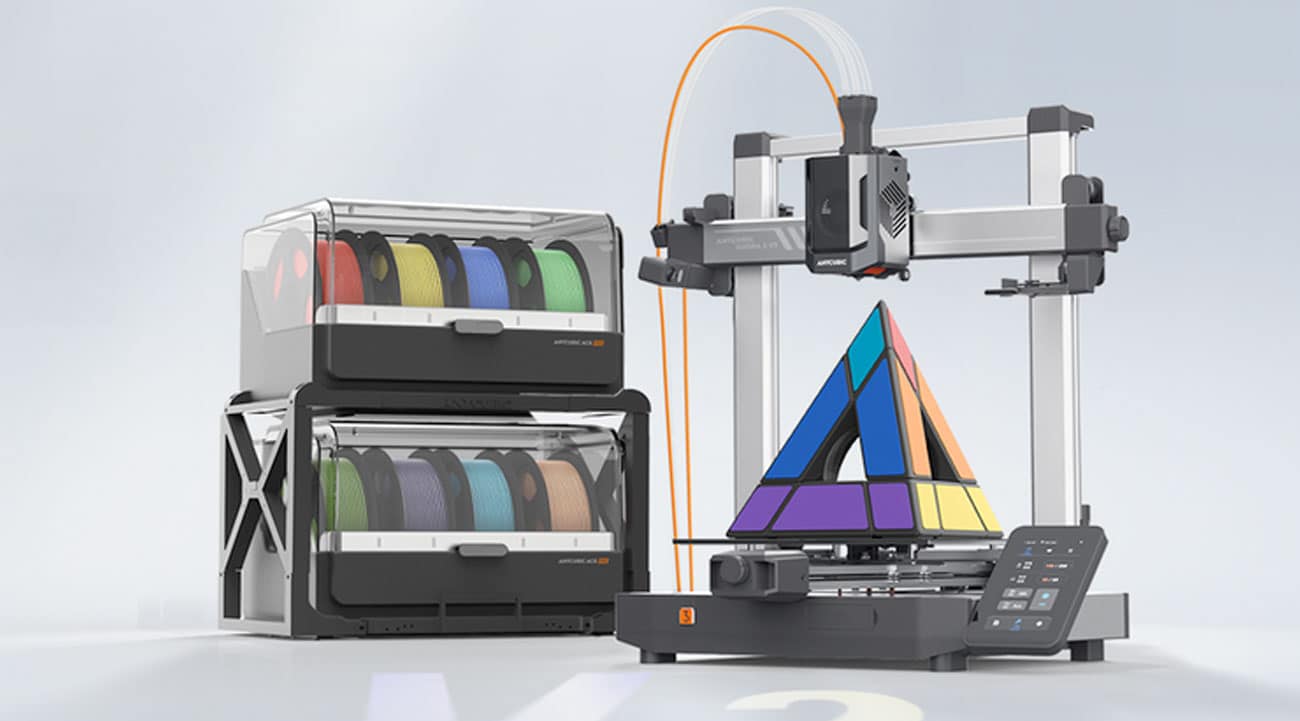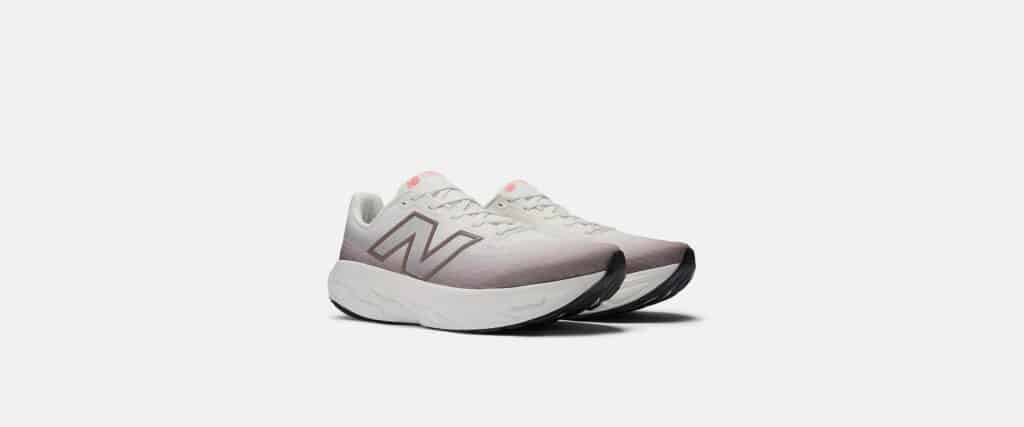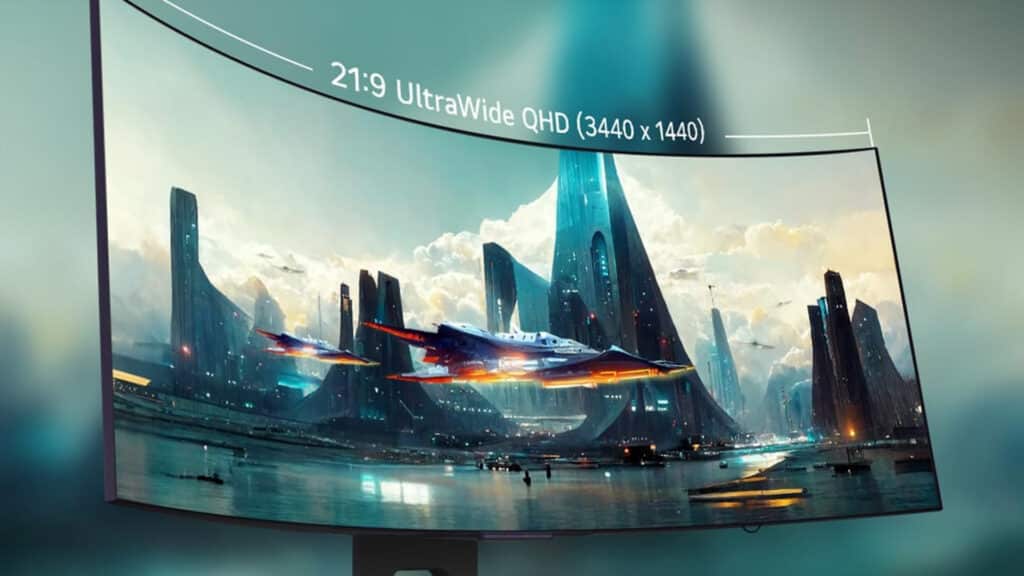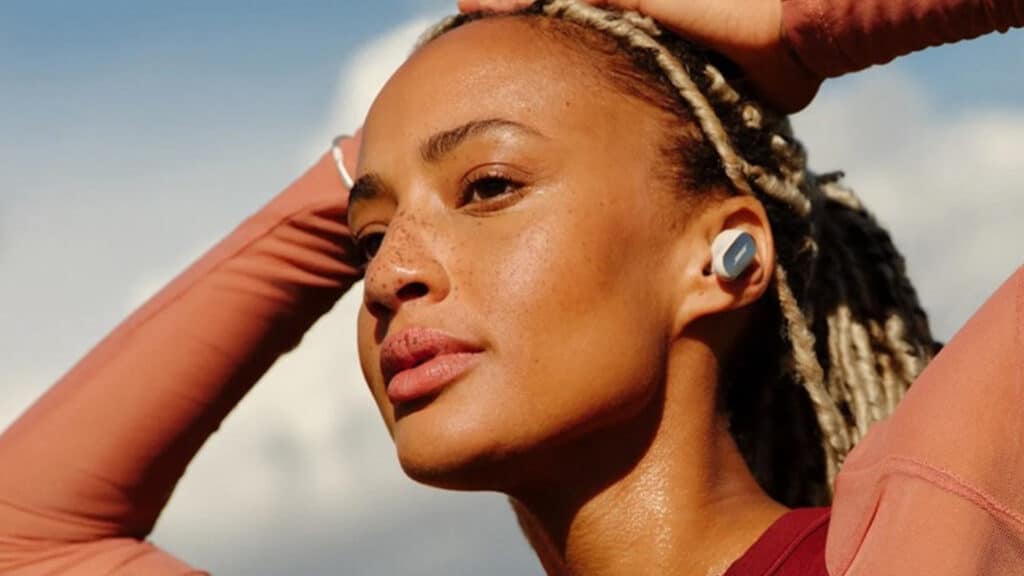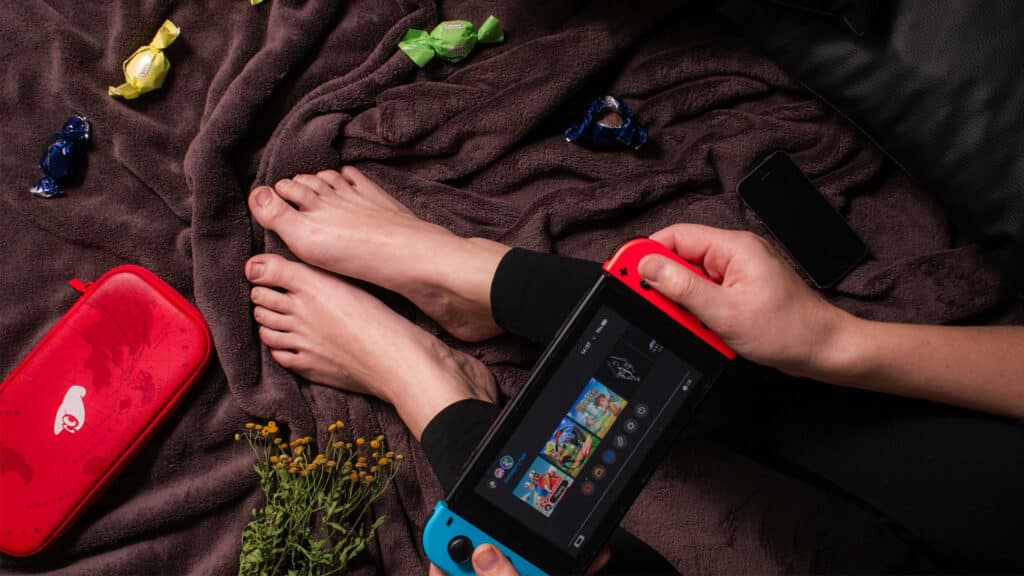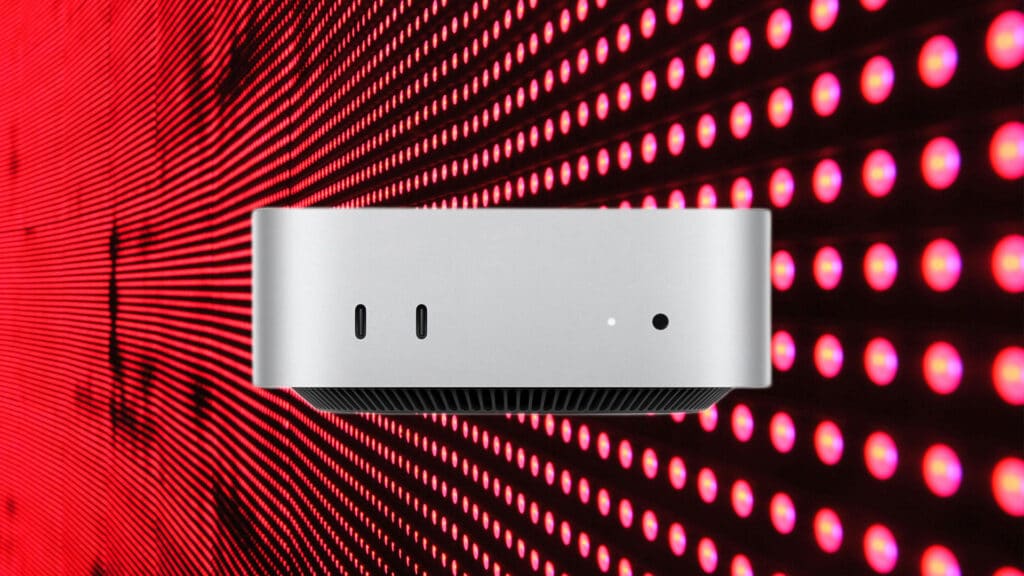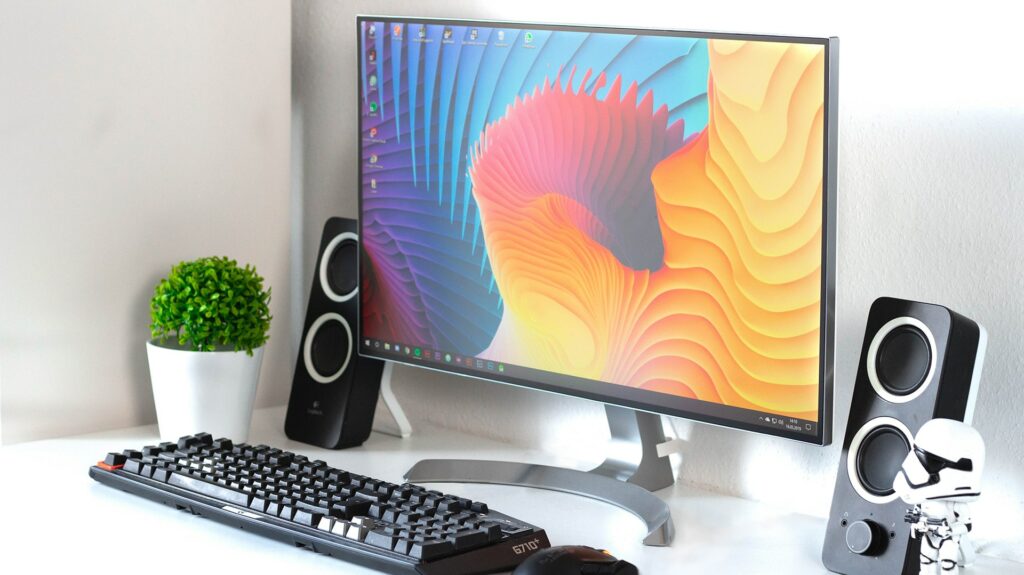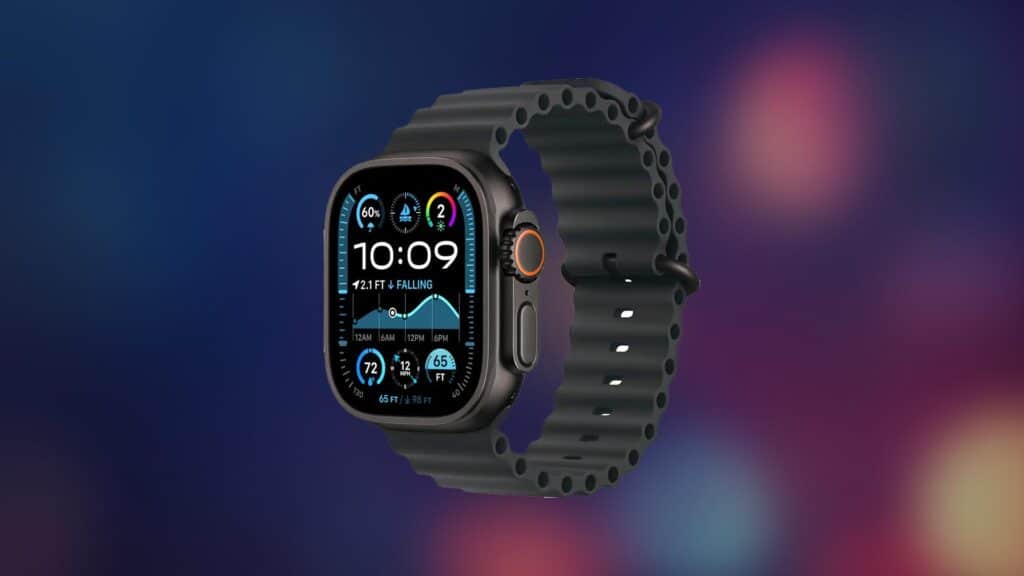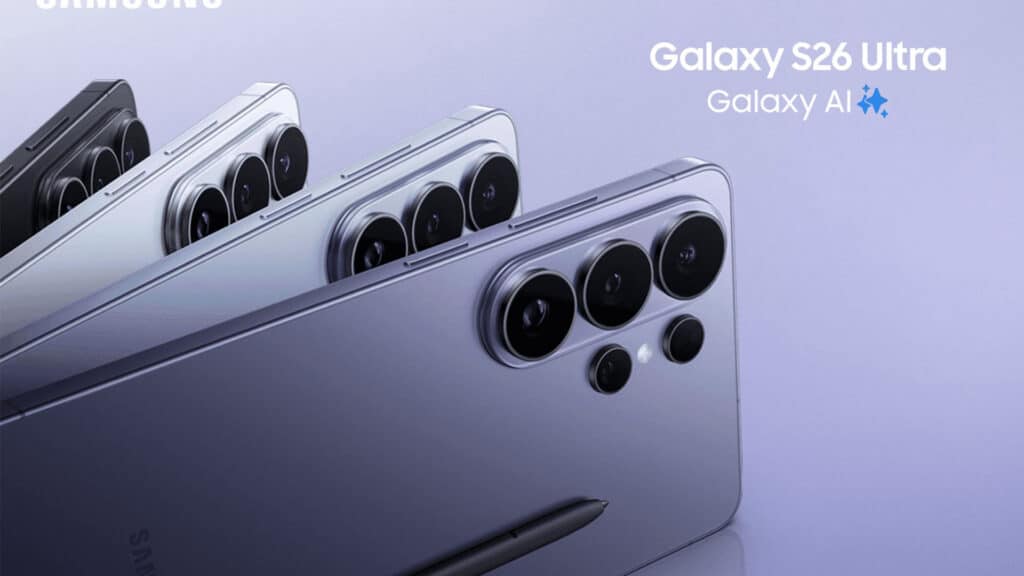Advertiser Disclosure: At Slickdeals, we work hard to find the best deals. Some products in our articles are from partners who may provide us with compensation, but this doesn’t change our opinions. Our editors strive to ensure that the information in this article is accurate as of the date published, but please keep in mind that offers can change. We encourage you to verify all terms and conditions of any product before you apply.
Reading Time: 6 minutesThere was a time when being a DJ meant utterly breaking your back and your wallet. To own a decent mixer, turntables and an adequate record collection, people would need to sink thousands upon thousands of dollars into their craft. Meanwhile, lugging said records to parties was a cumbersome, fraught affair that probably made some gigs more trouble than they were worth.
Fast-forward to today, and the modern DJ’s setup is nearly unrecognizable, with a plethora of options available ranging from $10,000 behemoths to a readily affordable DJ controller that can fit in a backpack. Being a DJ no longer costs a small fortune in currency or physical labor; nearly anyone can now afford the basic tools needed to start their journey to becoming a pro selector.
With that in mind, we’ve rounded up three options for the best beginner DJ controller currently on the market. Each of the controllers listed here are powered via USB to computer connection, require software to function and cost under $250. Now you’ll be able to choose the best DJ controller in your price range.
Pioneer’s DDJ-400
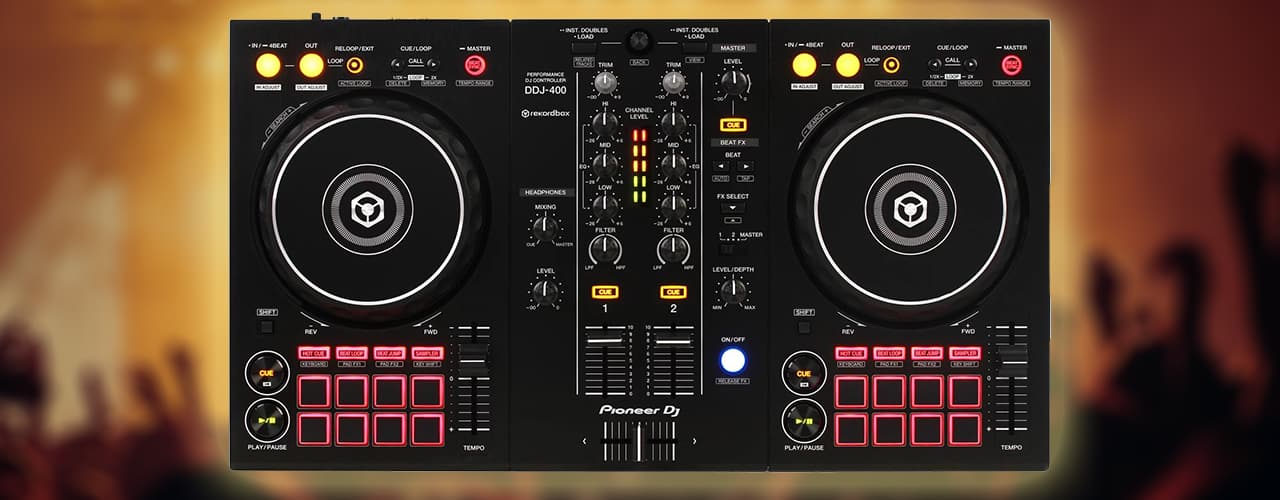
Credit: Pioneer
A popular controller among beginners and seasoned DJs alike, the 400 has all of the key features people have come to expect in a modern DJ controller, including eight performance pads, dedicated filter knobs and two responsive jog wheels. DJs using the 400 will find themselves limited only by the scope of their imagination, as the controller’s array of functions make scratching, looping and beat matching feel approachable and seamless.
Check out the Pioneer DDJ-400 on Sweetwater
What’s especially great about the 400, however, is its similarity to a professional Pioneer DJ setup. The in/out loop layout mimics the CDJ’s classic looping system, while the controller’s FX strip is modeled after what might be found in a DJM mixer. The inclusion of both of these features will help beginner DJs become familiar with the professional system they might one day encounter.
Also included in the DDJ-400 bundle is Pioneer’s Rekordbox DJ software. Originally designed to be a program solely for organizing tracks between gigs, Pioneer has upgraded Rekordbox into a full-fledged performance program in recent years, sharing many key attributes with the popular Serato DJ software. What makes Rekordbox unique, though, is its deep organization toolkit, allowing users to arrange their library with custom tags for tracks, a search function to find related songs by BPM, key and even “mood” and a dedicated window for editing track information.
For many professional DJs, Rekordbox is a key part of the process, and its inclusion here is another reason beginners with higher aspirations might want to check out the DDJ-400.
In addition to its FX, CDJ-like layout and the inclusion of Rekordbox DJ, the 400 sports solid build quality and attractive looks to boot. Any way you slice it, for $249, the 400 is an excellent choice for any fledgling DJ hoping to tackle a professional setup at some point.
Pioneer’s DDJ-SB3
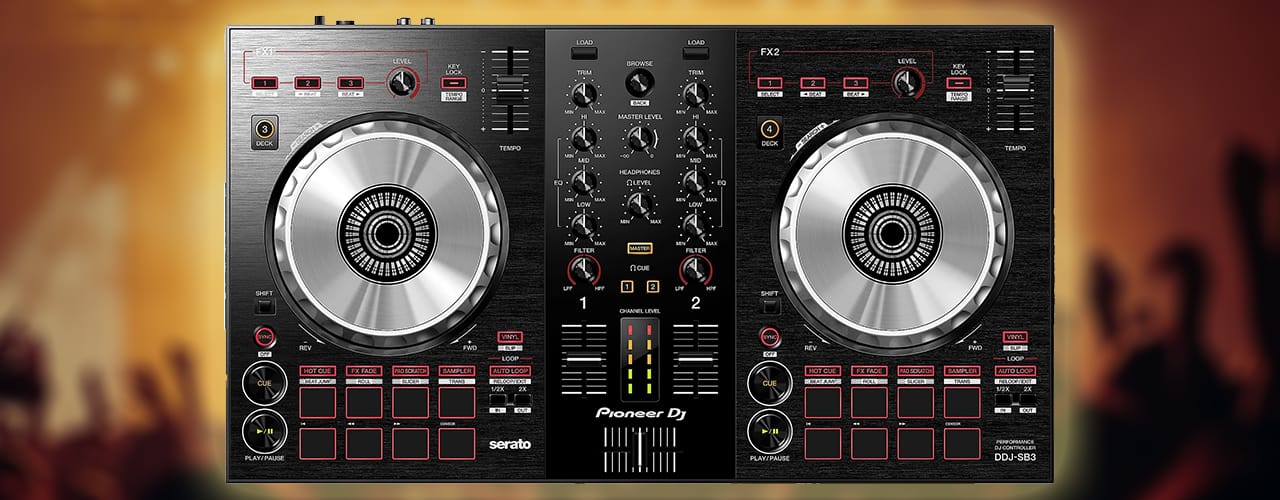
Credit: Pioneer
An alternative to the 400 is Pioneer’s DDJ-SB3. While there’s a lot of crossover in terms of FX and functionality, the SB3 has some unique features. A big selling point is the controller’s “Pad Scratch” effects, affectionately known as the “Jazzy Jeff Button” among the DJ community. Pad Scratch lets DJs execute exciting scratch tricks without having to work the jog wheels at all — simply hold a performance pad down, and the controller takes care of the rest. This is a great tool to help DJs, particularly those who enjoy hip-hop and trap music, pull off unique mixes and beat juggling without much of a learning curve. It’s also an excellent way to build a familiarity with what a successful scratch-based transition feels like.
Check out the Pioneer DDJ-SB3 on Guitar Center
Another sweet function found in the SB3 is the ability to use up to three FX per deck at a time — a massive step-up when compared to the DDJ-400’s one-FX-per-deck capability. This gives DJs an incredible amount of room to be creative and think outside the box when mixing.
Included in the SB3 bundle, which runs at $249,is the “Lite” edition of the industry-standard Serato DJ software, beloved by DJs everywhere for its wide range of FX and streamlined layout. While Rekordbox DJ is a decent performance software but an excellent tool for organizing tracks, the reverse rings true for Serato. The software’s bright, colorful interface, in-depth FX control and cue point controls are just a few of the exciting features that make this software a must-have for controller based DJs.
An important difference between Serato and the DDJ-400’s Rekordbox DJ is controller compatibility. While Rekordbox DJ is only compatible with Pioneer hardware, Serato DJ can be used with virtually all modern DJ controllers. This allows for greater versatility for new DJs that might want to branch out from Pioneer at some point in the future.
Serato also has two proprietary expansion packs available: Pitch ‘n’ Time and Flip. PNT features studio grade key shift and key lock functionality, while Flip allows DJs to create and play their own edits of tracks using custom cue points. The ability to add these expansion packs on is a great option for those looking to increase their performance capabilities once they’re comfortable with the basics.
However, there are some limitations within Serato DJ Lite that are important to consider. For instance, DJ Lite cannot record mixes without using third-party software and has considerably less in-depth sync and key analysis functionality. You also won’t be able to use all eight of your performance pads unless you upgrade to the Pro version, and only a limited number of FX are available for use.
Still, DJ Lite is a powerful tool for beginner DJs to learn, and is always available to be upgraded to the Pro version for $99.
Numark’s Mixtrack Pro FX
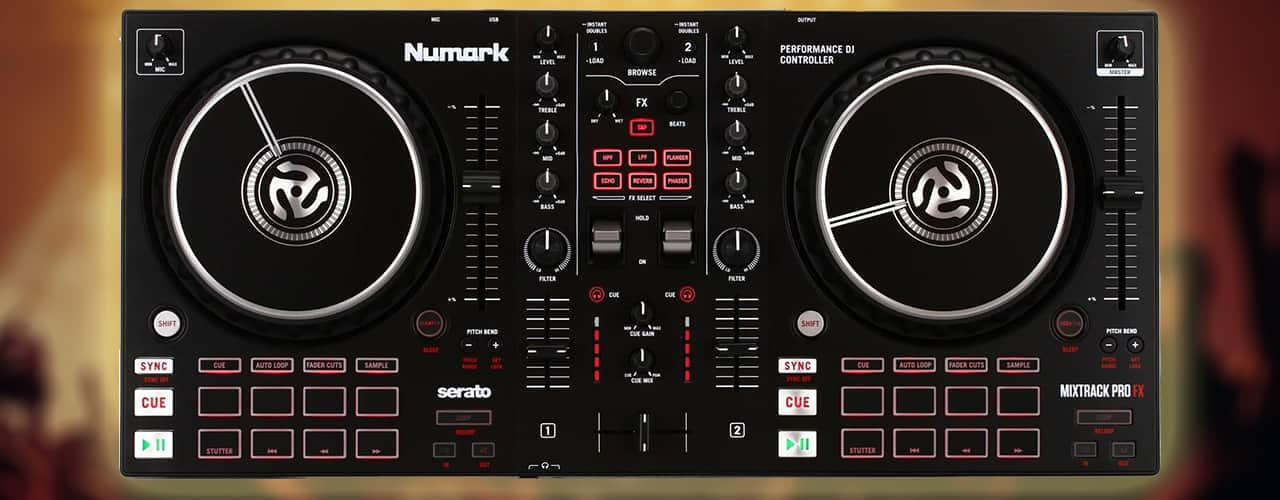
Credit: Numark
Numark’s Mixtrack Pro FX is the final entry in our selection of beginner DJ controllers, and is easily one of the best controllers ever produced by Numark. The Pro FX shares industry-standard similarities with its competitors in the Pioneer family of DJ gear, including eight performance pads, filter knobs and responsive EQ controls. The overall layout is largely the same as well, with play and cue buttons taking their usual place near the performance pads, However, at only $229, the Pro FX touts some unique features that really give Pioneer a run for their money.
Check out the Numark Mixtrack Pro FX on Sweetwater
The first thing you’ll probably notice about the Pro FX is the size of some of its components, with Numark taking the phrase “bigger is better” in stride. Meaty, 6-inch jog wheels sit atop each deck, nearly a full inch bigger than the platters found on the Pioneer controllers. The Pro FX also boasts longer pitch faders than the DDJ SB3 and 400, allowing for more tactile, precise pitch control in your mixes.
This bump up in both jog wheel and pitch fader size should give beginner DJs a comfortable space to experiment in while learning to mix. These controls are also much closer in size to the roughly 8-inch platters and lengthy pitch faders typically found in professional DJ equipment.
A unique aspect of the Mixtrack Pro FX is the way its FX are controlled. While the Pro FX features a pretty familiar FX selection and layout, the FX are toggled using two “paddles”, one for each deck. To switch your FX on, simply pull down on the desired paddle and release it when you’re finished. The benefit here is response time; DJs will likely find the quick release of the paddles to be much snappier than having to move a finger to press a button or twist a knob on and off. The paddles can also be locked in place by pushing upwards, allowing you to keep your desired FX toggled on if you happen to lift your finger.
The tradeoff here is that only one effect can work at a time throughout the entire controller. Understandably, the FX paddles might be a big turn-off for some and a godsend for others, so give it your full consideration when choosing which controller you’d like to get your hands on.
Like Pioneer’s DDJ-SB3, the Pro FX comes packaged with Serato DJ Lite, so it’s unfortunate that the controller is unable to control multiple FX at a time and make use of Serato’s full range of capabilities. Still, the Pro FX is a wonderful choice in hardware for entry-level DJs who desire precision controls and unique performance options.
More to consider:

